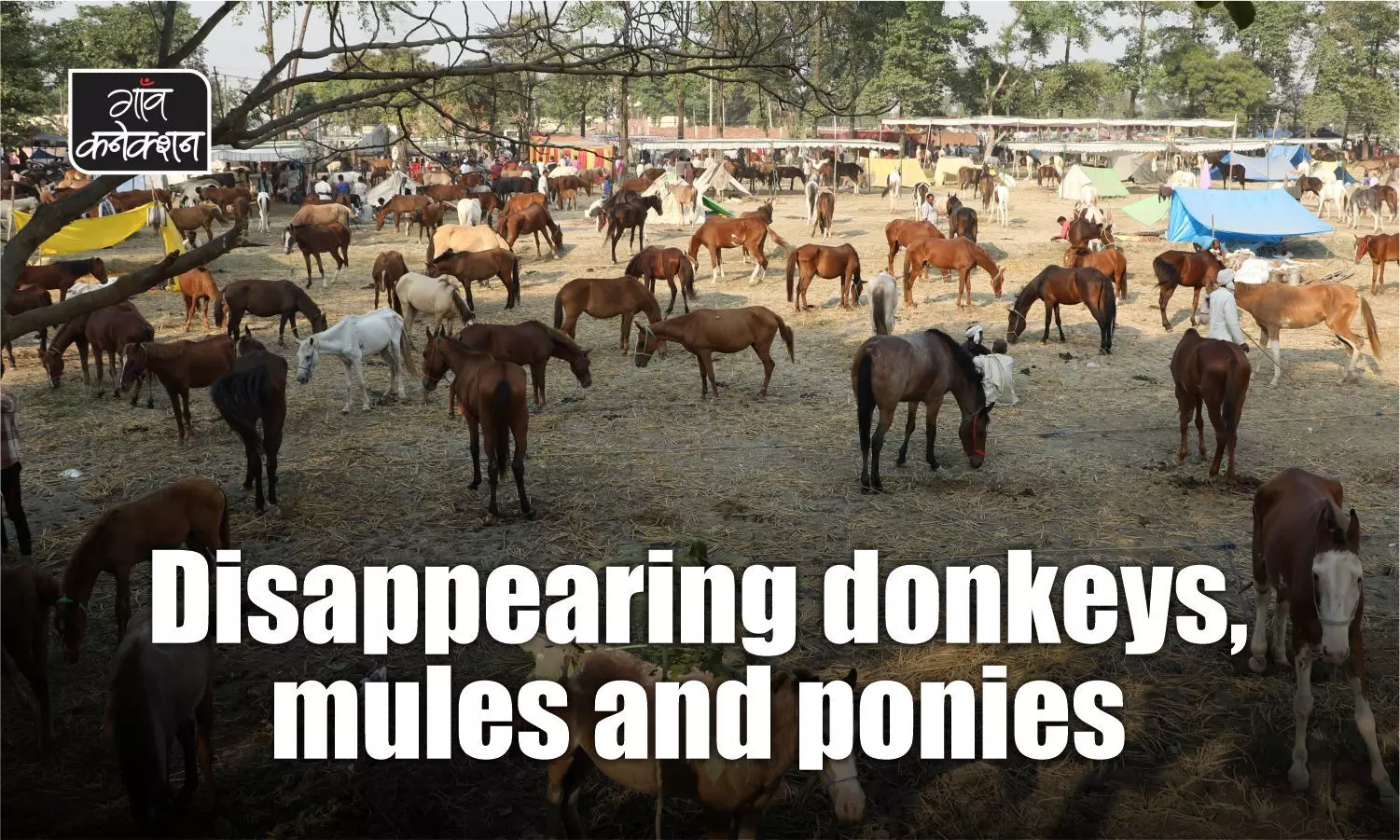Livestock census: Population of donkeys, mules and ponies sees a dip of 52% since the 2012 census
According to the present livestock census, there are 5.4 lakh horses, donkeys, and mules. The number stood at 11.4 lakh in 2012. This means that there has been a dip of 51.9% -- around 6 lakh -- in their population
 Diti Bajpai 29 Oct 2019 7:30 AM GMT
Diti Bajpai 29 Oct 2019 7:30 AM GMT

According to the 20th Livestock census, there has been a dip in the number of horses, donkeys and mules in the country as compared to the last census which was carried out in 2012.
While some experts blamed it on automation, increased use of modern machinery and lack of jobs in brick kilns because of which donkeys and mules, the traditional hoarders, were done away with, other experts believe that increased demand of skin of donkeys in China is the reason behind the sudden plunge in the numbers. Donkey skin is used for making traditional medicines in China.
In India, livestock census is conducted once every six years. According to the present livestock census, there are 5.4 lakh horses, donkeys, mules, the number stood at 11.4 lakh in 2012. This means that there has been a dip of 51.9% -- around 6 lakh -- in their population.
According to the data, there has been a dip of 54% of mules in Jammu and Kashmir, which stands at 2% in Uttarakhand, 12% in Himachal Pradesh and 59% in Uttar Pradesh.
Watch the video here:
Many states host cattle and livestock fairs periodically. It has been observed that there's been a decreasing trend in their population. Dewa in Barabanki district of Uttar Pradesh is a perfect example to see this change. Rajkumar, 60, who came to sell his mules in the fair in Dewa said, "This place used to be fully packed 3-4 years from now. Now, we see very few animals. I hope that I don't have to take my animals back with me like last year because this trade has been suffering losses."
The Dewa fair is organized every year in the memory of Haji Waris Ali Shah's father Qurban Ali Shah in Barabanki. A grand cattle market which includes mules, donkeys and ponies is set up a week before this fair. Many sellers and buyers come from various parts of the country. Rajkumar, who is also a businessman, came with his 22 mules but could sell only five of them.
"We would get work in brick kilns before. But these days, tractors and trolleys are being used there. In villages too, the number of people using buggies has reduced. People prefer e-rickshaws these days," said Rajkumar.
Many people and their families like Rajkumar, who were dependent on this trade, are losing their means of livelihood. Many poor families domesticate these donkeys, mules and ponies and earn their living.
According to the 20th livestock census, there are 3.4 lakh horses and ponies – the number stood at 6.4 lakh in the previous census. The number of mules which stood at 2 lakh has reduced to 80,000. There are 1.2 lakh donkeys according to the census, which has reduced from 3.2 lakh in the previous census.
Babu Kumar Balmiki, who lives in Indira Nagar in Lucknow, has been attending this fair in Dewa for the past many years. He said, "I have been coming to sell mules since my childhood. People don't come to buy mules in the fair now. Their domestication has also decreased. This is why our sales have gone down."
Decreasing agricultural land and costly fodder are also to be blamed. Jagraj, who lives in Gandhinagar village in Lucknow district of Uttar Pradesh said, "One of the families in our village had 15 animals, but now they are left with only 4-5 animals because people now have fenced their lands with barbed wire. They would hurt themselves while grazing. Also, the fodder in the market is becoming costlier."
Many poor families are associated with horse keeping. In India, Brooke, an organization is making people aware of how to keep animals and prevent them from several diseases. Dr Manish Rai, who is working as a senior veterinarian in the organization, said: "The number of horses and mules has been decreasing continuously because there are many substitutes available for them. E-rickshaws have replaced the tongas. Also, in view of protecting the environment, many brick kilns are shutting down. And wherever they are still functioning, they use tractors and trolleys, which affect their job opportunities."
He added, "Mules and ponies are used in the mountainous areas. But these animals are decreasing in numbers even in those areas now. With the construction of roads, it has become possible for vehicles to reach those areas."
Also Read: Livestock Census 2019: Population up 4.6% to 536 million
More Stories




